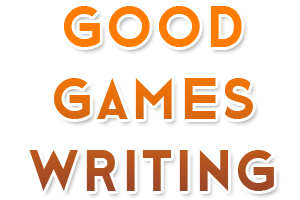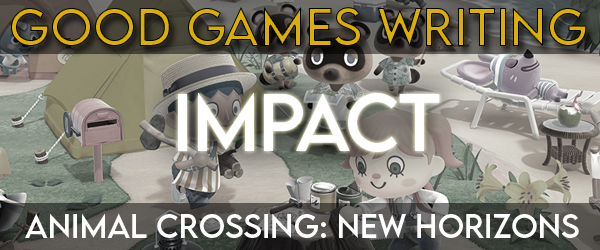Our ongoing announcements for #TheGoodies2020 continue with our only game-centred award, an award for fan creation, and one for indie coverage.
It’s all here.
IMPACT
The IMPACT Award is our equivalent of Game of the Year. It’s not for a game we necessarily loved the most. Instead, it’s for the game that inspired the pieces we appreciated the most, those pieces that we just couldn’t get out of our head. It is, in every way, an award celebrating games media: This game serves as a muse.
Several games did exactly that in 2020. Cyberpunk unleashed a torrent of pieces, from reporting on the game’s crunch to critical examinations of its marketing. Blaseball fascinated us to the point we read more on it in a short window of time than pretty much anything else – thanks Eric Van Allen!
There was The Last of Us Part II, of course, with writers like Natalie Flores and Kenneth Shepard surprising us regularly with nuanced takes, though they certainly weren’t alone. Ghost of Tsushima and Miles Morales each generated works that were masterful–see here and here for instance–locking up Sony’s domination over this category.
In the midst of a global pandemic, however, it was Animal Crossing: New Horizons that ruled the roost, with a mix of pieces, criticism and otherwise, that constantly captured our attention. There was a piece on stock trading in the literal sense; our Evan McIntosh wrote many words arguing Tom Nook is something of a socialist while Astrid Johnson at Polygon seemingly disagreed on every count with a communist critique of the game; commentary on abandoning our islands hit us; accessibility continued to be a mainstream conversation and Animal Crossing got in on it; connections were sought and made vis a vis the game; our list is getting out of hand at this point and we have another dozen or so pieces we featured through the year.
Animal Crossing was in many ways inescapable escapism. It drove discussions–particularly around gaming in the pandemic, particularly on publications that don’t generally consider gaming.
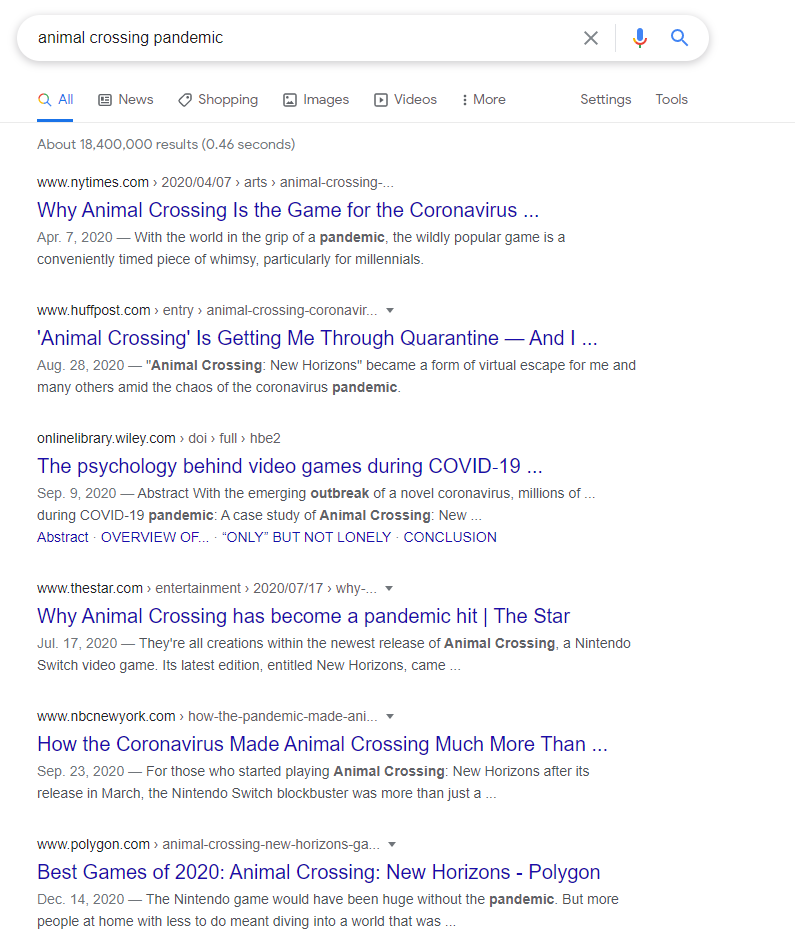
Animal Crossing: New Horizons is our IMPACT Game of the Year.
CURATOR’S CHOICE: FAN CONTENT
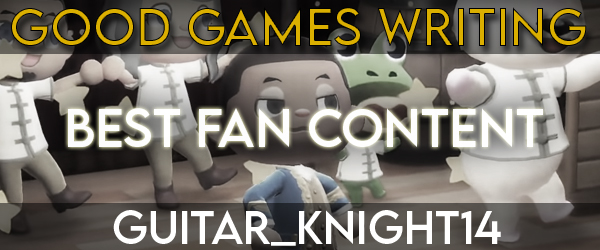
Throughout the course of researching and engaging with the best games writing we come across a ton of fan made content. We’re talking things like fan art, in-game creations, custom plush, game re-creations, comics, and so much more.
The one thing we kept coming back to, again and again, was a series of videos blending Animal Crossing: New Horizon’s Harv Island with Hamilton. Both were undoubtedly major creative forces for creatives in the summertime–seeing the blend of the two materialize, again and again, song by song, was a treat.
We specifically want to honour “Right Hand Man” for the little nods it gives. When Washington (Phil) sings of there being an elephant in the room there’s literally an elephant. The moods and expressions, varied as they are in the song, are delivered masterfully. “Satisfied” is, in our opinion, the best piece in all of Hamilton, and while it’s done well in Animal Crossing, it doesn’t carry quite the same weight as the original. Not so for one of Washington’s big moments as the game so readily lends itself to telling the story.
INDIE GAME COVERAGE
You voted on the award that should be featured here and you chose indie game coverage. This is one of those beats that doesn’t get enough respect and we want to recognize two websites we trust on the beat: BigBossBattle and The Indie Game Website. Both were shut out of the shortlists by our panel but our curators regularly visit each site to find the latest and greatest indies. Check them out.
The panel had a difficult task, however, as the quality of coverage out there continued to rise, with pieces from sites big and small tackling indie games, and YouTubers leaving an indelible mark on the category.
People Make Games is always quality but its take on Hades’ dialogue was fascinating — the timing of its release paired with more information being released from Supergiant.
Only two of our other nominees focused on individual games. Kaile Hultner’s essay on The Convience Store dovetails with his own experience in the service industry while critiquing the psychological horror elements.
More shocking than any of the creepy goings-on at this convenience store in Japan, at least for me, was how quickly I fell back into this mode of thinking and working. It wasn’t instantaneous, the switch flipped and then there was a delay, but it wasn’t much of one. And then I was back in my smock and stained khakis, rubbing spilled soda out of the floor mats. I went about familiar tasks, restocking missing items, killing rats and, at one point, getting a guy five cans of light beer and a pack of cigarettes (muttering “get them yourself” under my breath as my playable character did).
There’s also Nicole Carpenter’s review of If Found… — a game that piqued our interest a few times throughout the year — in which Carpenter makes erasing central to her interpretation of the game, both a mechanic to cover and an allegory to extend.
We should mention, here, Jack Yarwood’s piece on Soon, Only the Ocean, as it is remarkably novel, both the game and the writing. The game itself still exists, we suppose, but it’s not the experience you’d get had you played it in its first days (for more on that, read the article). Yarwood’s writing, then, feels like something of a dispatch, a take on a limited series that won’t be seen again, and it reminded us immediately of Curiosity: What’s Inside the Cube?, a game that also had a defined end period.
The rest of the nominated pieces tackled multiple games to weave together a broader narrative arc. We enjoyed Corrupted Save’s video on service jobs (a wonderful complement to Hultner’s piece above) and were challenged by Molly C. Beer’s reporting on efforts to reinvigorate Indigenous languages and cultures.
Ultimately, our panel was torn, with votes coming for each nominated piece: a testament to the quality of work in this category.
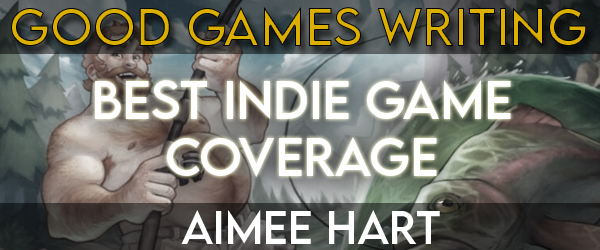
That the winner was a piece that asks a provocative question–“Where Are All The Fat Queer Video Game Characters?“–doesn’t surprise us, as many of the above pieces, and the games they’re attached to, do just that. This is a piece that forces us to confront our expectations on games in an unexpected way, while building off other works with generous references to those pieces. It asks us to consider a major release in Hades while contemplating The Waylanders.
The LGBT+ community in video games has grown over time – just look at the inclusion of Dina in The Last of Us Part 2, and the various characters in The Waylanders – but the fact is that attractiveness is only considered that when the characters are thin. It’s a problem that’s rife in real-life queer spaces, so it’s certainly isolating to see progressive game studios stating that they are doing well in regards to representation when every queer character shown may not look like you at all.
We hope to see more pieces that push forward conversations such as this throughout 2021. This is the start we needed.
